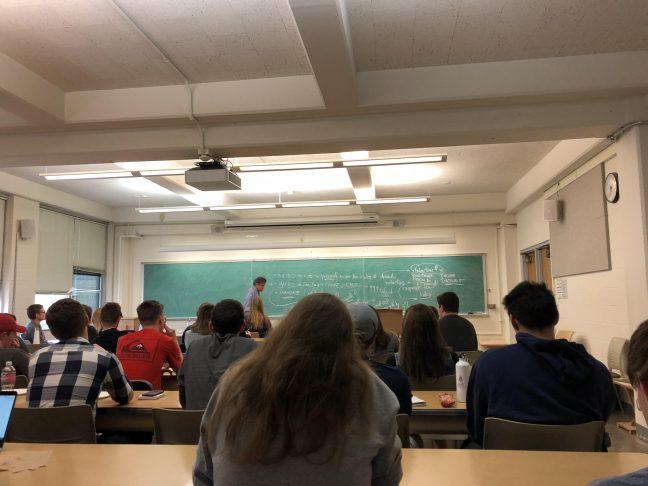A senior economics lecturer at the University of Wisconsin deconstructed the Tax Cuts and Jobs Act passed last year, and said tax cuts across the board will only recoup one-third of revenue lost while also increasing the deficit.
David Johnson said the question that should be asked of any tax reform is not whether cutting taxes for the rich or for corporations will have a positive effect on job creation and investment, rather to what magnitude these effects will be.
Proclamations from chief executive officers like Tim Cook — who promised to bring back and invest the majority of the $252 billion that Apple held in banks abroad once the corporate tax rate was reduced — or from politicians — who say the bill would “pay for itself” — are contradicted by all available data, Johnson said.
“The last two or three times when we saw major restructuring of incomes and of activities overseas back into the U.S., the lion-share of that went into things that basically padded shareholder value,” Johnson said.
Johnson said the bill is likely the clearest depiction of “voodoo economics,” or ill-advised economic policy that falsely promises increased revenue from tax cuts.
Johnson said the vast majority of economists agree, including those at both the Tax Policy Center and the Congressional Budget Office, that even under the best of conditions, the bill will only increase annual GDP growth by 0.3 percent over the next 10 years.
Politicians in Washington, going against all available evidence, are the only group that thinks revenue increases will be significant, Johnson said said.
Johnson, however, disagreed with those on the left who said those with lower income will not benefit at all. Because the bill doubles the standard reduction on tax returns, he said the poor will likely be buoyed by money saved during tax season.
But because the bill includes a pass-through income tax cut of 20 percent, businesses and those on the higher ends of the income distribution will be able to reclassify their income to avoid paying higher rates, potentially aggravating income inequality, Johnson added.
The element of the bill that makes economists “batshit crazy,” as Johnson put it, is its elimination of the Affordable Care Act mandate requiring those to either have health insurance or pay a fine, because it has nothing to do with tax reform. Plus, he added, the elimination of the individual mandate sows the seeds for the ACA’s demise.
“Not being able to kill [the ACA] in its entirely means you can … maim it so that over time it will continue to be ever more costly because you’re taking that risk pool and making on average sicker,” Johnson said.
Projecting forward, Johnson predicted health care premiums will rise, the need for entitlement reform will worsen and the deficit will continue to expand.
And in ten years, when social security and medicare under the strain of an aging population are expected to collapse and the tax cuts established in this bill are slated to end, he said politicians will ultimately have to revisit tax reform and decide whether to increase taxes or cut benefits.


